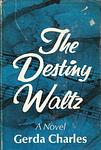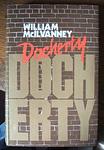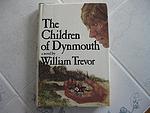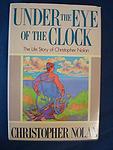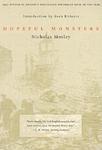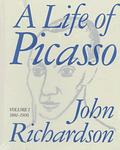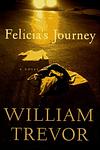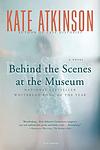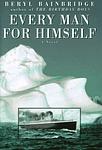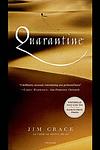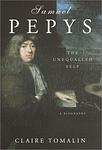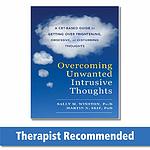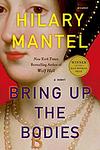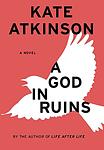Costa Book Award - Best Novel
This is one of the 282 lists we use to generate our main The Greatest Books list.
-
English Passengers by Matthew Kneale
Set in the 19th century, this novel follows a group of Englishmen who, driven by different motivations, set off on a voyage to Tasmania. The group includes a vicar who believes Tasmania is the site of the Garden of Eden, and a doctor who is interested in studying the 'inferior' races. When they arrive, they encounter the harsh realities of British colonial rule and the near-extinction of the native population. The story is told from multiple perspectives, including that of a Tasmanian man, which provides a broad view of the cultural and social complexities of the era.
-
Twelve Bar Blues by Patrick Neate
"Twelve Bar Blues" is a multi-generational tale that spans across time and continents, intertwining the lives of characters from New Orleans to London and Africa. The narrative explores the roots and evolution of jazz music through the life of a legendary cornet player, his granddaughter who is in search of her roots, and an Englishman obsessed with the history of jazz. The book delves deep into the themes of love, identity, race, and music, presenting a vibrant portrayal of the jazz age and its cultural impact.
-
Spies by Michael Frayn
In the novel, two boys, Stephen and Keith, live in a quiet English suburb during World War II. Keith's mother becomes the object of their spy games when they suspect her of being a German spy. As the boys delve deeper into their espionage, they uncover secrets that change their understanding of their families, their neighborhood, and themselves. The story is a poignant exploration of childhood innocence, friendship, and the loss of innocence that comes with knowledge.
-
The Curious Incident of the Dog in the Night-time by Mark Haddon
This novel follows a 15-year-old boy with autism as he tries to solve the mystery of who killed his neighbor's dog. Along the way, he uncovers other secrets about his family and must navigate the world using his unique perspective and abilities. The book offers an insightful look into the mind of a character with autism, highlighting his struggles and triumphs in a compelling and empathetic way.
-
Small Island by Andrea Levy
"Small Island" is a historical novel that explores the intertwined histories of Jamaica and the UK, as well as the themes of race, empire, and migration. The story is set in 1948 and is told from four different perspectives: two Jamaican immigrants, Hortense and Gilbert, who move to England after World War II, and an English couple, Queenie and Bernard. The narrative explores the racial tension, discrimination, and culture shock that the immigrants face in their new home, while also delving into the complexities of war, identity, and the British Empire.
-
The Accidental by Ali Smith
The novel centers around a woman named Amber who unexpectedly arrives and disrupts the lives of the Smart family while they are on summer holiday in Norfolk. Each family member - Eve, a writer, Michael, a university professor, and their children Astrid and Magnus - experience unique interactions with Amber, causing them to question their own realities. The mysterious woman's influence forces the family to confront their secrets, insecurities, and the false narratives they've created about themselves.
-
Restless by William Boyd
"Restless" is a gripping espionage thriller that delves into the life of a young woman who discovers that her mother was a spy for the British Secret Service during World War II. The narrative alternates between the past and present, revealing the mother's secret life as a spy in the 1940s and the daughter's quest in the 1970s to uncover the truth. The book presents a riveting tale of deceit, betrayal, and survival, set against the backdrop of a world at war.
-
Day by A. L. Kennedy
"Day" is a powerful novel about a World War II veteran who returns to the scene of his former imprisonment as an extra on a film set. The protagonist is haunted by his experiences as a tail gunner and a prisoner of war, and the narrative alternates between his time in the stalag and his present day experiences on the set. As he grapples with his past, he also seeks to reconnect with a woman he once loved, adding a poignant layer to his journey of self-discovery and healing.
-
The Secret Scripture by Sebastian Barry
"The Secret Scripture" is a deeply moving tale of Roseanne McNulty, a centenarian who has spent most of her life in a mental institution in Ireland. As the institution is about to be demolished, her psychiatrist Dr. Grene must determine whether she's fit to be released. As he delves into her past, Roseanne reveals her life story through a secret memoir she's been writing. The narrative alternates between Roseanne's recollections and Dr. Grene's observations, revealing a tragic and complex history of Ireland's social and political changes, while also exploring themes of memory, identity, and sanity.
-
The Destiny Waltz by Gerda Charles
"The Destiny Waltz" is a novel that tells the story of a homosexual Jewish man living in London and his struggle to reconcile his identity with societal expectations. The protagonist's journey is marked by his relationships with several women, his efforts to navigate the world of academia, and his struggle with his own desires. The story is a poignant exploration of identity, love, and the often painful process of self-discovery.
-
The Bird of Night by Susan Hill
"The Bird of Night" is a historical novel that explores the life of a brilliant, but mentally unstable poet named Francis Croft in 20th-century England. Told through the perspective of his friend and caretaker, Harvey, the book delves into the complexities of their relationship, the struggles of mental illness, and the cost of genius. As Francis' condition deteriorates, Harvey is left to grapple with the moral and emotional toll of caring for a troubled genius. The novel is a poignant exploration of love, friendship, sacrifice, and the destructive power of mental illness.
-
The Chip Chip Gatherers by Shiva Naipaul
"The Chip Chip Gatherers" is a novel that explores the complex dynamics of a multi-generational Indo-Trinidadian family, the Khojas, living in Trinidad. The story revolves around the ambitions and struggles of the family patriarch, Egbert, as he attempts to rise above his impoverished beginnings and establish a successful life for his family. However, his efforts are constantly undermined by family squabbles, cultural tensions, and the harsh realities of post-colonial Trinidad. The novel provides a stark portrayal of the struggles faced by immigrants and the destructive power of envy and resentment within a family.
-
The Sacred and Profane Love Machine by Iris Murdoch
The book revolves around the lives of three main characters: a psychoanalyst, his wife, and his mistress. The psychoanalyst lives a double life between his wife and children and his mistress, who lives nearby with their son. The story explores themes of love, morality, guilt, and identity as it delves into the consequences of the psychoanalyst's actions on the lives of those around him. The narrative takes a tragic turn when the wife discovers the affair and the two families are thrown into a complex and painful situation.
-
Docherty by William McIlvanney
Set in the early 20th century, the novel tells the story of Tam Docherty, a miner in a small Scottish town who struggles to provide for his family amidst harsh working conditions. Despite the constant hardships and poverty, Docherty remains hopeful and resilient, instilling strong values and a sense of pride in his children. The book offers a powerful depiction of working-class life and explores themes of social injustice, family bonds and the human spirit.
-
The Children of Dynmouth by William Trevor
"The Children of Dynmouth" is a chilling and suspenseful novel about a 15-year-old boy who uses his knowledge of the town's dark secrets to manipulate and control the lives of its residents. The teenager's disturbing behavior and sinister plots create a sense of unease and tension among the townspeople, leading to a climax that reveals the true nature of his intentions. The book explores themes of innocence, evil, and the power of knowledge, providing a deep and unsettling examination of human nature.
-
Injury Time by Beryl Bainbridge
"Injury Time" is a darkly comedic tale of a middle-aged man who has a secret mistress. He organizes a dinner party with his friends and his mistress, but the party takes a disastrous turn when it is interrupted by burglars. The story is a satirical exploration of love, betrayal, and the absurdity of suburban life.
-
Picture Palace by Paul Theroux
The novel follows the life of Maude Coffin Pratt, a celebrated photographer who has traveled the world capturing images of extraordinary events and people. Now in her seventies, she is attempting to organize a retrospective exhibition of her work. As she sifts through her extensive collection of photos, she finds herself reliving her past, particularly her tumultuous relationship with her younger brother, an affair that shaped her life and continues to haunt her. The narrative explores themes of love, obsession, and the power of photography to capture and preserve moments in time.
-
The Old Jest by Jennifer Johnston
The novel is set in Ireland during the Irish War of Independence and follows the story of an 18-year-old girl who befriends an elderly man living in a beach hut. As she navigates her transition into adulthood, she is also confronted with the harsh realities of war and political unrest. The story explores themes of friendship, coming-of-age, and the personal impact of political conflict.
-
How Far Can You Go? by David Lodge
The book is a satirical take on the lives of a group of Catholic students from the 1950s to the 1970s. It explores the changes in their lives and attitudes as they grow older and the Catholic Church undergoes significant shifts in doctrine and practice. The narrative delves into their struggles with faith, morality, and personal relationships, providing a humorous yet poignant critique of religious and social conventions.
-
Silver City by Maurice Leitch
"Silver City" is a compelling narrative that takes place in the aftermath of the American Civil War. The story follows a young Irish immigrant who embarks on a journey to the West in search of silver and fortune. Along the way, he encounters a myriad of characters, each with their own unique stories and backgrounds, and he must navigate the harsh realities of life on the frontier, including violence, lawlessness, and the relentless pursuit of wealth. The novel explores themes of ambition, survival, and the American Dream in a raw and unforgiving landscape.
-
Young Shoulders by John Wain
"Young Shoulders" is a coming-of-age novel about a 10-year-old boy living in a small English town during World War II. The protagonist struggles with the harsh realities of war, the death of his father, and his mother's mental health issues. Despite the difficulties, he finds solace in his love for literature and his friendship with a local bookseller. The narrative explores themes of loss, resilience, and the power of literature.
-
Fools of Fortune by William Trevor
"Fools of Fortune" is a tragic tale that follows the lives of the Quinton family, an Anglo-Irish family living in Ireland, during the early 20th century. The family's fortune takes a turn for the worse after a devastating fire, believed to be an act of revenge by Irish nationalists, claims the lives of several family members. The surviving members are left to grapple with their loss, guilt, and the political turmoil of their time, leading to a cycle of self-destruction and a desperate search for redemption.
-
Kruger's Alp by Christopher Hope
"Kruger's Alp" follows the journey of a South African everyman, a railway guard, who embarks on a trek across Europe to find the grave of Paul Kruger, a former president of South Africa. Along the way, he encounters a variety of characters and experiences that reflect on the history and politics of his home country, providing a satirical and insightful commentary on South African society during the apartheid era.
-
Oranges are not the only Fruit by Jeanette Winterson
This novel follows the coming-of-age story of a young girl adopted by a religious fanatic, who believes her daughter is destined to become a missionary. As the protagonist grows up, she begins to question her mother's strict religious beliefs and discovers her own sexuality. The book explores themes of identity, love, and religion, as the protagonist grapples with her place in the world and her evolving understanding of herself.
-
An Artist of the Floating World by Kazuo Ishiguro
This novel is a historical narrative set in post-World War II Japan, focusing on an aging painter who grapples with his past as a propagandist for the imperialist movement. As he navigates the rapidly changing cultural landscape, he faces criticism and ostracism for his role in promoting Japan's militaristic past. The story explores themes of guilt, regret, and the struggle for redemption, offering a nuanced examination of the personal and societal consequences of war.
-
Elegies by Douglas Dunn
"Elegies" is a collection of poems that serves as a profound and moving chronicle of the author's grief following the death of his wife from cancer. The verses are raw, honest, and intimate, exploring the depths of sorrow, the emptiness of loss, and the struggle to find meaning in the face of such devastating heartbreak. At the same time, the poems also celebrate the joy of love, the beauty of shared experiences, and the enduring strength of the human spirit.
-
The Child in Time by Ian McEwan
A man's life is dramatically altered when his young daughter is kidnapped during a routine shopping trip. As he grapples with the loss, he also deals with a failing marriage, a best friend who becomes a government official, and a strange time-warp phenomenon. The narrative delves into themes of parenthood, loss, and the fluidity of time, while exploring the protagonist's struggle to maintain his sanity amidst the chaos.
-
Under the Eye of the Clock by Christopher Nolan
This novel is a semi-autobiographical account of a young man with cerebral palsy who uses his intelligence and determination to overcome his physical disability. Despite being unable to speak or move without assistance, the protagonist excels academically, eventually earning a place at a prestigious university. The book is a testament to the power of the human spirit and the potential within us all to rise above our limitations.
-
The Comforts of Madness by Paul Sayer
"The Comforts of Madness" is a powerful and poignant novel that delves into the mind of a mute and catatonic man confined in a mental asylum. The narrative alternates between his internal monologues, filled with rich and vivid imagery, and the observations and interactions of the hospital staff. The book provides a stark and unsettling exploration of mental illness, challenging the reader's perceptions of sanity and reality.
-
The Chymical Wedding by Lindsay Clarke
"The Chymical Wedding" is a novel that intertwines the lives of two poets in the 1980s with the historical tale of the alchemist, Sir Edward Kelley and Queen Elizabeth I's astrologer, John Dee. The modern day poets are researching the historical figures and find their lives mirroring the tumultuous relationship of Kelley and Dee. The novel explores themes of love, betrayal, alchemy, and the transformative power of the human spirit.
-
Coleridge: Early Visions by Richard Holmes
"Coleridge: Early Visions" is a comprehensive biography that offers an in-depth look into the life of one of the most influential English Romantic poets. The book chronicles the poet's early life, his education, his relationships and his struggles with opium addiction. It also delves into his philosophical ideas, his collaborations with other notable figures of his time, and his literary contributions, particularly his poetry and critical essays. The biography provides a detailed and nuanced portrayal of the poet's complex personality, his creative process, and the social and cultural context in which he lived and worked.
-
Hopeful Monsters by Nicholas Mosley
"Hopeful Monsters" is a novel that explores the lives of two intellectuals, a German physicist and a British anthropologist, against the backdrop of the political and scientific upheavals of the 20th century. Their personal journeys and love story are intertwined with their pursuit of understanding in the realms of physics, biology, and anthropology, as they grapple with issues such as quantum mechanics, genetics, and the nature of consciousness. The narrative also delves into the moral and ethical challenges posed by the rise of fascism and the advent of the atomic bomb.
-
The Queen of the Tambourine by Jane Gardam
The novel follows the life of Eliza Peabody, a bored, middle-aged housewife living in a wealthy London suburb. As her life starts to unravel, she begins writing a series of unsolicited letters to her neighbor, Joan, offering unsolicited advice. When Joan disappears, Eliza continues her one-sided correspondence, revealing more about her own life and its gradual descent into madness. The novel is a darkly comic exploration of loneliness, mental illness, and the human need for connection.
-
A Life of Picasso by John Richardson
This biography delves into the life of one of the most influential artists of the 20th century, Picasso. The book provides an in-depth look into his early life, his relationships, his artistic evolution, and his influence on the art world. It offers a comprehensive exploration of Picasso's personal and professional life, shedding light on his genius and the complexities of his character. The author's detailed research and intimate knowledge of the artist's life make this book a definitive biography of Picasso.
-
Poor Things by Alasdair Gray
"Poor Things" revolves around the life of Bella Baxter, a woman who is brought back from the dead by a Victorian-era doctor who replaces her brain with that of the fetus she was carrying at the time of her death. The book explores Bella's life as she grows up with the mind of a child but the body of a woman, her marriage to a man who tries to control her, and her eventual escape and journey of self-discovery. The narrative is presented through various documents and viewpoints, providing a complex and thought-provoking look at themes such as love, identity, and the nature of humanity.
-
Swing Hammer Swing! by Jeff Torrington
The narrative is set in the 1960s in Glasgow, Scotland, and follows the life of a young man named Thomas Clay. Clay is an aspiring writer who is struggling with writer's block while dealing with the impending birth of his first child, the destruction of his tenement building, and his wife's hospitalization. The novel provides a humorous and poignant look at the hardships of urban life, the complexities of personal relationships, and the struggle for artistic expression amid the chaos of everyday existence.
-
Theory of War by Joan Brady
"Theory of War" is a historical novel that tells the story of a young boy who, after the Civil War, is sold by his impoverished mother to a distant cousin as a form of bonded labor. The novel explores the harsh realities of his life as a "white slave" in Kansas, and his struggle for freedom and identity. It also delves into the psychological and societal implications of this form of slavery, presenting a powerful commentary on the human capacity for cruelty and resilience.
-
Felicia's Journey by William Trevor
"Felicia's Journey" is a psychological thriller about a young, pregnant Irish girl who travels to England in search of her boyfriend, only to be taken in by a middle-aged man with a dark past. As the story unfolds, the man's sinister intentions become increasingly apparent, creating a suspenseful tale of manipulation and deception. The novel explores themes of loneliness, innocence, and the capacity for evil, offering a chilling exploration of human nature.
-
The Moor's Last Sigh by Salman Rushdie
This novel follows the life of Moraes Zogoiby, the last in line of a once powerful and influential Indian family. Told from his perspective, Moraes recounts his family's history, starting with his grandparents and moving through to his own life. The narrative is filled with tales of love, betrayal, political unrest, and the supernatural. The protagonist's life is marked by a strange curse that causes him to age twice as fast as a normal human, adding a layer of urgency and tragedy to his story. The book explores themes of cultural identity, family legacy, and the passage of time.
-
Behind of the Scenes at the Museum by Kate Atkinson
The novel is a unique blend of family saga and historical fiction, told from the perspective of Ruby Lennox, whose narrative begins before her birth and spans over three generations of women in her family. Ruby's story is interwoven with "footnotes" that delve into the lives of her ancestors, revealing secrets, tragedies, and the complexity of their relationships. The book explores themes of motherhood, loss, and identity, while providing a humorous and poignant look at life in the 20th century England.
-
Every Man for Himself by Beryl Bainbridge
"Every Man for Himself" is a historical fiction novel centered around the ill-fated voyage of the Titanic. The story is narrated by a 22-year-old American named Morgan, who is a nephew of the owner of the ship. The novel vividly portrays the class distinctions, social norms, and personal ambitions of the era, while masterfully building up the suspense and tragedy of the impending disaster. The narrative weaves together a complex web of relationships and events, exploring themes of love, betrayal, and the human condition against the backdrop of one of the most infamous maritime disasters in history.
-
The Spirit Level by Seamus Heaney
"The Spirit Level" is a collection of poems that delve into the human experience, exploring themes of love, loss, memory, and the natural world. The work is imbued with a sense of introspection and reflection, as the poet grapples with personal history and the passage of time. The poems are notable for their rich language and imagery, evoking a strong sense of place and the elemental forces of nature.
-
Quarantine by Jim Crace
Set in the Judean desert, the book tells the story of a group of individuals who have chosen to quarantine themselves for forty days in order to find spiritual growth and healing. Among them is a young man who believes he is the son of God. As they battle the harsh conditions, their physical and psychological limits are tested, leading to a climactic and tragic end. The novel offers a unique interpretation of the biblical story of Jesus's forty-day fast in the wilderness.
-
Tales from Ovid by Ted Hughes
This book is a modern translation and adaptation of 24 of Ovid's stories from the Metamorphoses. It presents the tales in a language that is both poetic and contemporary, bringing to life the drama and humor of the original Latin text. The stories, which are full of transformations, adventures, and mythical creatures, explore themes such as love, power, revenge, and metamorphosis.
-
Leading the Cheers by Justin Cartwright
The novel follows the story of a man who returns to his hometown in America after many years of living in England. He is grappling with a mid-life crisis and the recent death of his brother, and hopes to reconnect with his past and find some meaning in his life. As he tries to unravel the mysteries of his past, he also gets involved in a local high school's cheerleading squad and a Native American's quest for identity, adding layers of complexity to his journey of self-discovery.
-
Birthday Letters by Ted Hughes
"Birthday Letters" is a collection of 88 poetic works that serve as a deeply personal reflection on the author's tumultuous relationship with his late wife. The poems, written over a span of 25 years but not published until after her death, depict the intense passion, emotional struggles, and heartbreaking tragedy that marked their life together. Through his evocative storytelling, the author provides a raw and intimate glimpse into his own psyche and the profound impact their relationship had on his life.
-
Music and Silence by Rose Tremain
Set in the 17th-century Danish court of King Christian IV, this novel follows the intertwining lives of several characters including a young English lute player, the king's ambitious second wife, and a manipulative servant. As they navigate the complexities of court life, their stories reveal themes of love, power, betrayal, and the transformative power of music. The novel is a rich tapestry of historical detail, complex characters, and emotional depth, exploring the silence that can exist in the midst of noise and the music that can emerge from silence.
-
Samuel Pepys: The Unequalled Self by Claire Tomalin
This biography provides a thorough and engaging look into the life of Samuel Pepys, a 17th-century English naval administrator and Member of Parliament, who is most famous for the diary he kept for a decade. The book explores his personal and professional life, his relationships, his work in the navy, his experiences during events like the Great Fire of London and the plague, as well as his interests in science, music, and theater. It offers a detailed and vivid portrait of Pepys and his times, revealing him as a complex, flawed, yet immensely likable character.
-
The Tenderness of Wolves by Stef Penney
Set in the 1860s, the novel tells the story of a small Canadian town rocked by the brutal murder of a French trapper. When a local woman's adopted son becomes the prime suspect, she embarks on a perilous journey through the wilderness to clear his name. Along the way, she uncovers a complex web of deceit and corruption within her community, while also coming to terms with her own past. The narrative is a gripping blend of mystery, adventure and historical fiction.
-
Brooklyn by Colm Tóibín
The novel tells the story of a young Irish woman, Eilis Lacey, in the 1950s who, unable to find work at home, is sent to Brooklyn by a helpful priest where she builds a new life. She finds work, studies to become a bookkeeper, and falls in love with an Italian plumber named Tony. However, a family tragedy forces her to return to Ireland, where she must choose between her new life in America and her old life at home.
-
The Hand That First Held Mine by Maggie O'Farrell
"The Hand That First Held Mine" is a captivating novel that tells two parallel stories. The first story is about a young, independent woman who moves to Soho, London in the 1950s, becomes involved in the bohemian art scene, and unexpectedly becomes a mother. The second story, set in the present day, follows a couple dealing with the chaotic and overwhelming reality of becoming first-time parents. As the novel progresses, the connection between these two narratives becomes clear, revealing a story of love, loss, and the powerful bond between a mother and her child.
-
Pure by Andrew Miller
Set in pre-revolutionary France, the novel follows a young engineer who is tasked with demolishing an overflowing cemetery in Paris. As he undertakes this macabre task, he encounters a variety of characters, including a rebellious nun, a gravedigger, and a family living on the cemetery grounds. The book explores themes of mortality, the inevitability of progress, and the fragility of existence, all set against the backdrop of a society on the brink of dramatic change.
-
Bring Up the Bodies: A Novel by Hilary Mantel
This historical novel continues the story of Thomas Cromwell, advisor to King Henry VIII of England. The narrative follows Cromwell's rise in power and the political machinations that lead to the downfall of Anne Boleyn. It showcases the manipulative and treacherous world of the Tudor court, where a single misstep can lead to disgrace and execution. Despite the danger, Cromwell manages to navigate the treacherous waters, using his intelligence and cunning to survive.
-
Satanic Verses by Salman Rushdie
The novel follows two Indian actors who miraculously survive a plane explosion, and as a result, find themselves embodying good and evil. As they navigate their new identities, the story also delves into the life of a prophet and his creation of a new religion in a city of sand. The narrative is a blend of fantasy and reality, exploring themes of identity, religion, and the immigrant experience, while also providing a controversial interpretation of Islamic faith and the life of Prophet Muhammad.
-
Beowulf by Unknown
"Beowulf" is an Old English epic poem that tells the story of the eponymous hero, a Geatish warrior who comes to the aid of Hrothgar, the king of the Danes, whose mead hall is under attack by a monster known as Grendel. Beowulf fights and defeats Grendel and his mother, earning the gratitude and friendship of Hrothgar. Later in his life, Beowulf becomes king of the Geats and faces his final battle with a deadly dragon. The poem explores themes of heroism, fate, and mortality, and is considered one of the most important works of Old English literature.
-
How to be both by Ali Smith
This novel is a dual narrative that explores the interconnected stories of a 15th-century Italian Renaissance artist named Francesco del Cossa and a modern-day teenager named George. The book is divided into two parts, one set in the past and one in the present, and the order in which they are read can change the reader's interpretation of the story. The novel delves into themes of art, gender, sexuality, and the fluidity of identity, while also examining the ways in which we perceive and understand the world around us.
-
A God in Ruins by Kate Atkinson
"A God in Ruins" is a novel that tells the story of Teddy Todd, a World War II bomber pilot, and his life before, during, and after the war. The narrative alternates between different time periods, exploring Teddy's childhood, his experiences in the war, and his later life as a husband, father, and grandfather. The book delves deep into the effects of war, the passage of time, and the complexities of family relationships, offering a poignant exploration of a man's life and the historical events that shape it.
Costa Coffee, 57 Books
The Costa Book Awards are a series of literary awards given to books by authors based in the United Kingdom and Ireland. They were known as the Whitbread Book Awards until 2005, after which Costa Coffee, a subsidiary of Whitbread, took over sponsorship.
The awards, launched in 1971, are given both for high literary merit but also for works that are enjoyable reading and whose aim is to convey the enjoyment of reading to the widest possible audience. As such, they are a more populist literary prize than the Booker Prize.
This list has a weight of 4%. To learn more about what this means please visit the Rankings page.
Here is a list of what is decreasing the importance of this list:
- List: only covers 1 year (yearly book awards, best of the year, etc)
- List: only covers 1 specific country
- Voters: are mostly from a single country/location
- List: only covers 1 specific language
If you think this is incorrect please e-mail us at [email protected].









